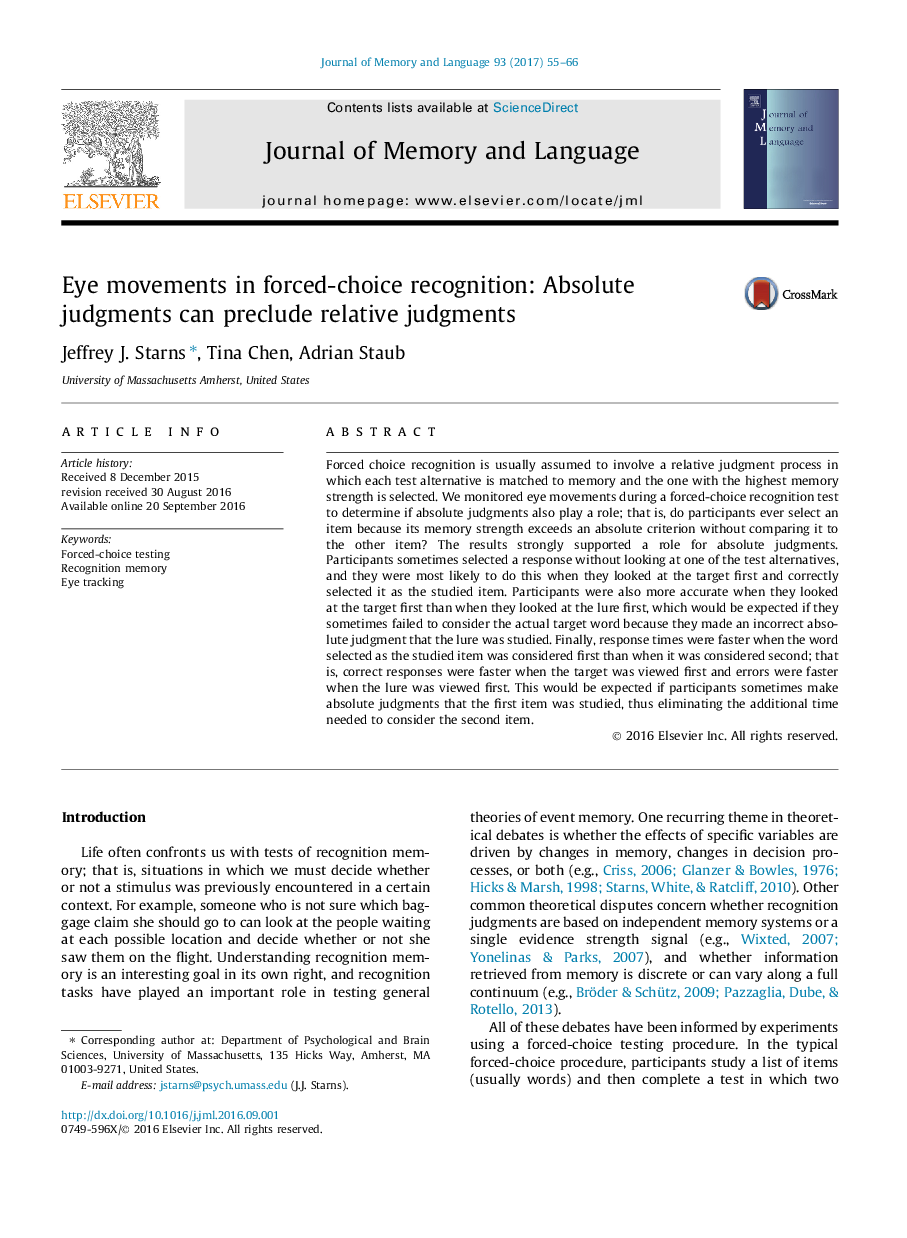| کد مقاله | کد نشریه | سال انتشار | مقاله انگلیسی | نسخه تمام متن |
|---|---|---|---|---|
| 5042537 | 1474626 | 2017 | 12 صفحه PDF | دانلود رایگان |
- Participants sometimes respond in forced-choice recognition after considering only one of the items.
- Participants are more accurate when they view the target first than the lure first.
- Participants are faster to decide when they select the first item that they considered.
- Forced-choice recognition involves a mixture of absolute and relative judgments.
Forced choice recognition is usually assumed to involve a relative judgment process in which each test alternative is matched to memory and the one with the highest memory strength is selected. We monitored eye movements during a forced-choice recognition test to determine if absolute judgments also play a role; that is, do participants ever select an item because its memory strength exceeds an absolute criterion without comparing it to the other item? The results strongly supported a role for absolute judgments. Participants sometimes selected a response without looking at one of the test alternatives, and they were most likely to do this when they looked at the target first and correctly selected it as the studied item. Participants were also more accurate when they looked at the target first than when they looked at the lure first, which would be expected if they sometimes failed to consider the actual target word because they made an incorrect absolute judgment that the lure was studied. Finally, response times were faster when the word selected as the studied item was considered first than when it was considered second; that is, correct responses were faster when the target was viewed first and errors were faster when the lure was viewed first. This would be expected if participants sometimes make absolute judgments that the first item was studied, thus eliminating the additional time needed to consider the second item.
Journal: Journal of Memory and Language - Volume 93, April 2017, Pages 55-66
